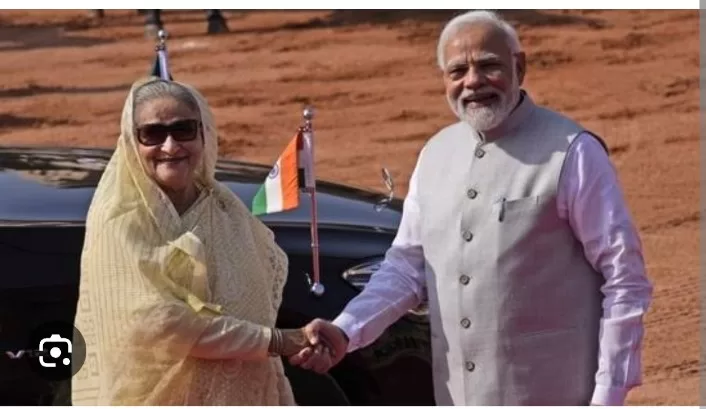In the ongoing political landscape of Bangladesh, India’s staunch support for Prime Minister Sheikh Hasina against Western pressures is pivotal. The geopolitical chessboard reveals that India’s interests extend beyond mere political alliances. Here are the nuanced imperatives India should seek in exchange for its backing:
1. Safeguarding Religious Minorities:
India must secure a commitment from Hasina to implement a rigorous ‘zero-tolerance policy’ against persecution of religious minorities. Stringent legal amendments and exemplary actions are imperative.
2. Affirmative Action:
Advocating for at least 10% reserved seats in elected bodies for Hindus, Buddhists, and Christians, who constitute about 8% of Bangladesh’s population.
3. Minorities Commission:
Pressing for constitutional amendments to establish an independent minorities commission, vested with extensive powers to oversee welfare measures and address cases of persecution.
4. Detangling from Controversial Ties:
Urging Hasina to sever links with individuals and entities known to be aligned with anti-India interests, including those with ties to China and Pakistan.
5. Restitution of Seized Properties:
Accelerating the return of properties unjustly confiscated from Hindus, Buddhists, and Christians, a lingering consequence of historical injustices.
6. Counter-radicalization Measures:
In the wake of growing radical Islamist forces, Hasina should commit to a stringent crackdown on outfits like Jamaat-e-Islami and Hefazat-e-Bangladesh. Initiating the closure of madrassas is essential to curb the breeding grounds for fundamentalism.
As Hasina navigates through this political juncture, India’s insistence on these commitments aligns with a broader vision of regional stability and inclusive governance. This strategic dance on the diplomatic stage underscores the intricate balance between geopolitical interests and ethical imperatives.







